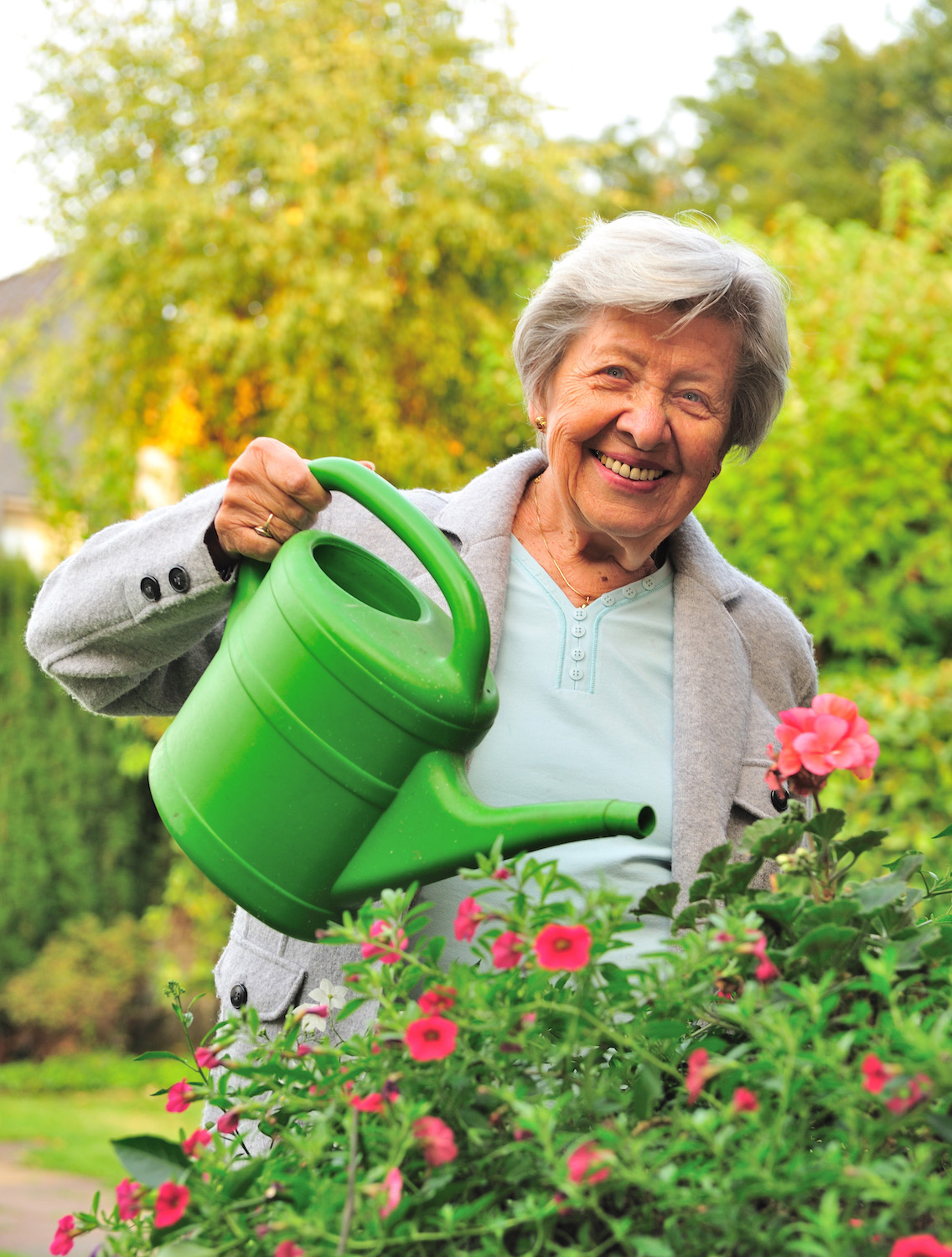Spring is in full bloom, and what better way to celebrate than by getting our hands in the soil and watching nature thrive? Gardening isn’t just a fun pastime, it offers incredible therapeutic benefits, especially for seniors in assisted living communities. As April showers bring May flowers, let’s explore how gardening can enhance well-being, foster social connections, and bring joy to daily life.
The Therapeutic Benefits of Gardening
Gardening is more than just planting seeds; it’s a holistic activity that stimulates the mind, body, and soul. Here are a few key benefits:
- Physical Health – Gardening encourages gentle movement, which can improve flexibility, coordination, and strength. Activities such as watering plants, digging soil, and planting flowers help seniors stay active in a low-impact way.
- Mental Well-Being – Spending time outdoors and engaging with nature has been shown to reduce stress, anxiety, and depression. The act of nurturing plants provides a sense of purpose and accomplishment for seniors in assisted living communities.
- Cognitive Engagement – Remembering when to water plants, identifying different types of flowers, and planning a garden layout stimulate cognitive function and memory for seniors.
- Social Connection – Gardening can be a shared experience for senior adults. Whether working together in a community garden or exchanging plant care tips, it fosters friendships and a sense of belonging.
Creating a Senior-Friendly Garden
To ensure gardening is accessible and enjoyable for seniors, consider these adaptations:
- Raised Garden Beds – These reduce the need for bending or kneeling, making gardening more comfortable for seniors.
- Container Gardening – Potted plants and window boxes are great alternatives for seniors with limited mobility.
- Adaptive Tools – Lightweight, ergonomic tools with extended handles make gardening easier on the hands and joints.
- Shade and Seating Areas – Providing shaded spots and benches allows seniors to take breaks and enjoy the beauty of their surroundings.
Bringing Gardening to Assisted Living Communities
Many assisted living communities incorporate gardening into their activity programs, allowing residents to experience its joys without the burden of heavy maintenance. Here are some ways to make gardening accessible for seniors in an assisted living community:
- Seasonal Flower Planting Days – Encourage residents to plant spring flowers such as tulips, daffodils, and pansies.
- Herb and Vegetable Gardens – Growing herbs like basil and mint or vegetables like cherry tomatoes can be rewarding and even contribute to fresh meals in the community.
- Garden Clubs – Organizing a club where residents can share tips, swap plants, and work together fosters camaraderie and engagement.
- Sensory Gardens – Creating a space filled with fragrant flowers, textured plants, and wind chimes can be a soothing retreat for senior residents, especially those in memory care.
Blooming Together
As we welcome the beauty of spring, gardening in a senior living community offers seniors a meaningful way to connect with nature and with each other. Whether through planting flowers, growing fresh herbs, or simply enjoying a peaceful garden space, the benefits of gardening in assisted living are truly evergreen. This April let’s embrace the joy of gardening and watch friendships and flowers flourish together!
Cavalier Senior Living is proud to provide community gardening opportunities for seniors in their communities, giving them a fun and meaningful way to build connections and enjoy their passions. You can click here to see all of Cavalier’s senior living communities, throughout Alabama and Georgia.


